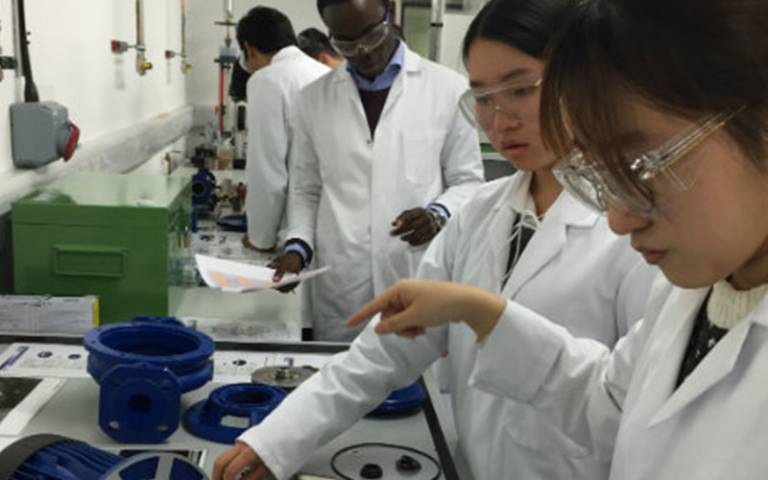Using scenarios to get students problem solving
Professor Eva Sorensen explains how Chemical Engineering students tackle six week-long real-world problem-based scenarios during their first two years as undergraduates.

21 July 2016
Each year, 140 to 160 students, working in groups of six or seven, take on an “open-ended, complex and ill-defined” real-world problem, based on the topics they are covering during that term.
The students are tasked with the scenario problem on a Monday and then given a full week to come up with a solution, attending formal ‘client meetings’ and facilitation drop-in sessions along the way, before submitting their findings – usually as a report and a presentation - by the end of the week on the Friday.
- The UCL Engineering website outlines more about what scenarios are, including example videos
Students apply their academic learning to real-world problems
Each scenario is new and created by the programme team in advance based on real-world issues and topics focussing on different parts of the chemical processing sector including energy, bulk chemicals and pharma to ensure the students get to experience a whole breadth of industry topics over the course of their two years.
Although fictitious companies are used (Bentham Chemicals, Ramsay Ltd, Fizer etc.), students tackle the problems in a way that builds their professional awareness and responsibilities.
The scenarios are designed to build in complexity as students take part in them, and they get to try different techniques to see how their academic learning can be made relevant in a mock professional setting. The scenarios purposely contain conflicting, or missing, information so that students must decide for themselves, as a group, how to solve it.
Students experience:
- exploring the fundamental technical principles of each topic
- the challenges of team working
- getting to grips with the practical, hands-on aspects of each scenario requiring them to come up with solutions to the design problem and to the implementation of their solution
- agreeing how best to present their findings, both orally and in writing
Some of the scenarios also give students the opportunity to undertake independent research in the lab.
Working in a group and conducting peer assessment
The programme team ensure the groups are mixed for each scenario with students placed in random, ability, mixed ability etc. teams, as well as given a chance to choose their own colleagues.
They have the opportunity to assess the performance of those in their group through peer marking, and the individual and team grades awarded are adjusted accordingly, although the programme team reserve the right to ignore the peer marks if deemed necessary. The cohort is given a detailed explanation in advance as to how peer marking works and the impact it will have.
Recognising achievements through prizes
For each scenario there is a prize awarded to the group with the highest marks, and in some cases a separate prize chosen for excellent in a given area of the scenario.
For instance, one group won a ‘People's Choice Award’ for their video describing a complex engineering problem in a digestible format targeted at AS-level students.
The videos were reviewed by secondary school students at ELUTEC, an East London academy sponsored by UCL’s Faculty of Engineering, based on quality, level of detail, and how easy the videos were to understand. In parallel, the programme team marked the same videos with criteria based on academic evaluation.
Feedback on the approach
Professor Sorensen says:
“Scenarios are part of the Faculty’s Integrated Engineering Programme (IEP) and take place in all Faculty departments at the same time. For all departments, the scenarios aim to give all our students a chance to put their learning into action in order to tackle real-world problems.
The engineering industry requires a strong ability to work in a variety of teams and to be able to present findings and show leadership.
The feedback from students shows that, whilst the work is challenging, scenarios continue to prove a great addition to the student experience with many students using them as examples of professional development.”
Student feedback is collected after each scenario.
- One student said: “Really good, if not the best, teamwork I have ever experienced.”
- Another commented: “Really liked the idea of the lab sessions - putting into practice and actually seeing stuff happening felt so much better than theoretical analysis or using a programming software.”
View videos students created in one of their scenarios
Valves, Pumps and P&ID's
 Close
Close

